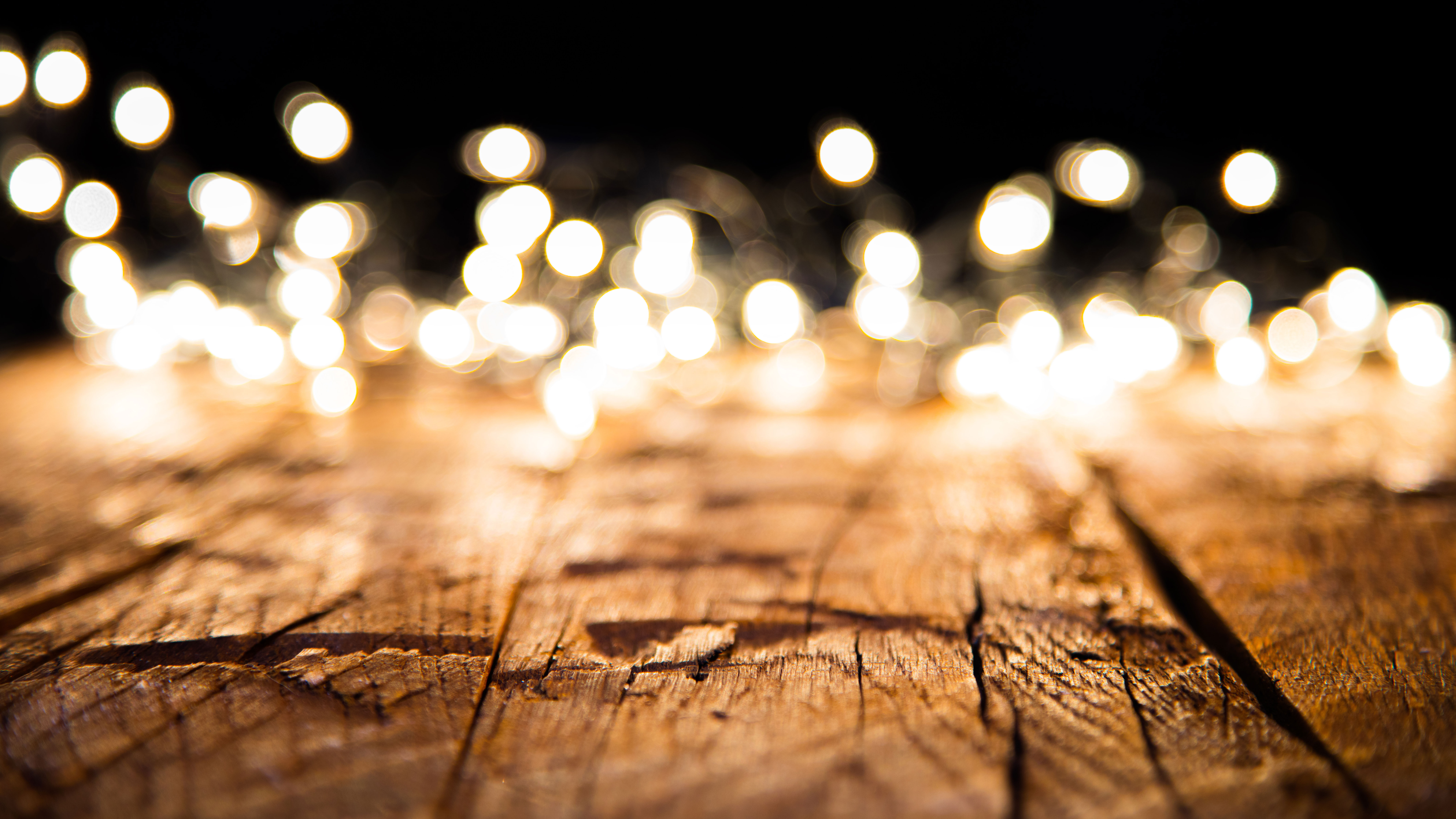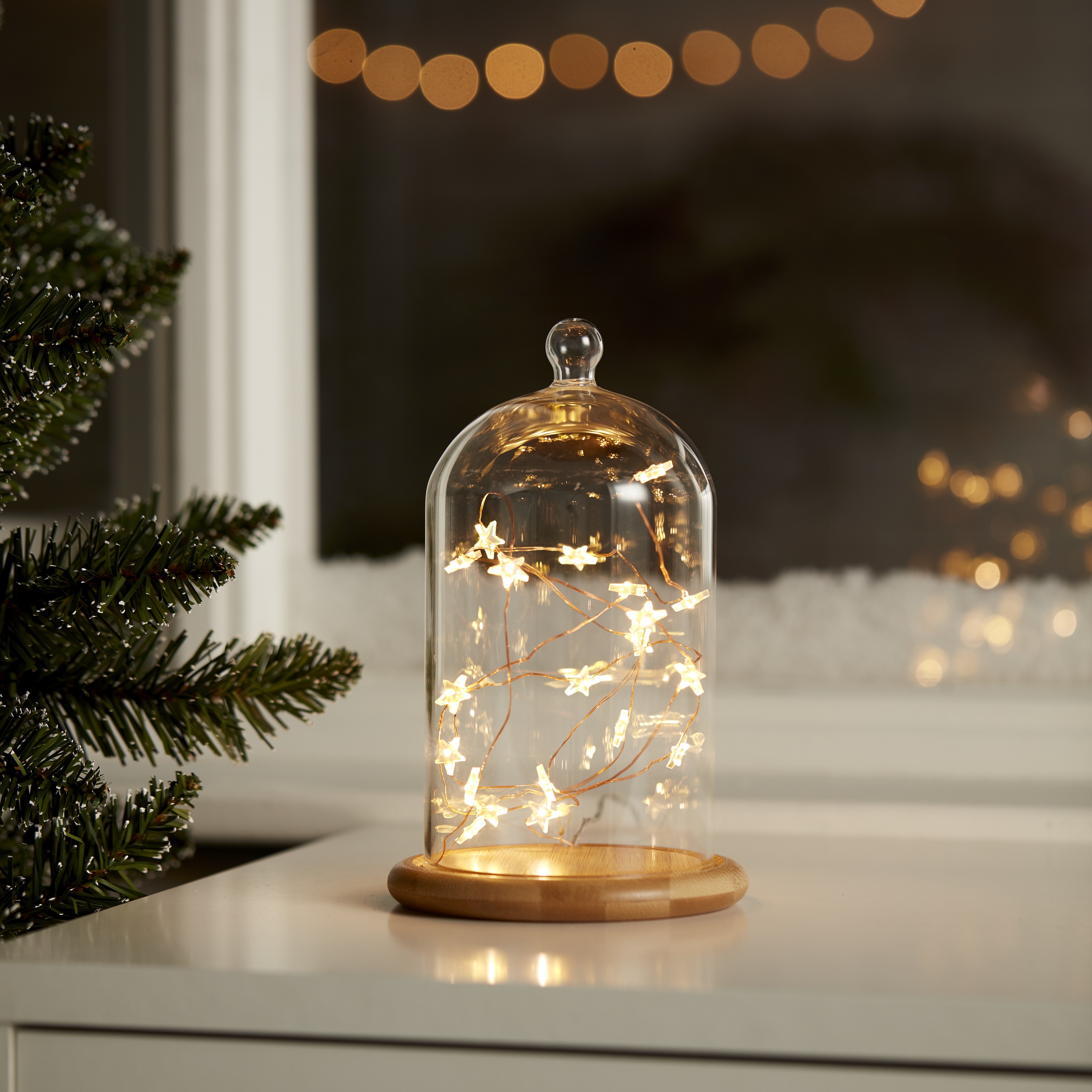Christmas light safety: what you need to know from the experts
Follow our guide to Christmas light safety and enjoy a magical display for the holidays

Lights are an indispensable element of seasonal decor, but what’s also essential is considering Christmas light safety. Whether they’re dressing up the tree and the rooms inside your home, or decorating the outside of the house, these sparkling illuminations have the potential to create a safety hazard.
But it is easy to avoid the pitfalls if you make the right checks, take the appropriate precautions, and follow some simple rules, and that’s where our Christmas light safety tips come in.
This year, plan your Christmas tree decor and more with Christmas light safety in mind. We’ve asked the experts to share their knowhow so you can be sure about what to do.
Christmas light safety
For optimum Christmas light safety, there a few simple things you need to pay attention to. It’s important to look at labels when buying, check the lights you already have to make sure problems haven’t developed, and follow safety guidelines for use. These are the details.
What to look for when you’re buying Christmas lights
Check labeling. ‘When shopping for lights, only purchase ones that have the UL mark on the product’s package as these have been tested and approved as safe,’ say the experts from Mr. Electric.
These are easy to find. ‘All light sets taken in by major retailers are UL approved and therefore vigorously tested to the highest standards,’ says John DeCosmo, the president of Ulta-Lit Tree Company.
In the UK check for safety marks such as the BS kitemark.
Get small space home decor ideas, celeb inspiration, DIY tips and more, straight to your inbox!
As to the type of lights, choose energy-saving LEDs, which emit less heat and have the bonus of saving you money. Shannon Bedrich, co-founder of ElectricityPlans explains: ‘LEDs cost 80 to 90 per cent less to operate than traditional lighting. And LED lights are available in a variety of bulb designs, from small pinpoint lights to the large traditional bulbs your grandparents used.
‘LEDs come in a variety of colors, so you can get the effect you want. If you want a traditional look with LED Christmas lights, look for a warm white bulb color.’
Another safety bonus of LED lights? ‘LED lights are made with epoxy covering rather than glass, so they are less likely to break,’ say Mr. Electric experts.
Check and maintain existing Christmas lights
If you’re using Christmas lights you already own, before adding them to the tree, check for failed bulbs, and replace these using the same type and rating as the originals.
Take care when replacing bulbs either before hanging Christmas fairy lights or if a bulb fails when they’re in use. ‘The single safest way is to unplug the lights prior to beginning your replacement work,’ says John DeCosmo.
Look out for any damage to wires. Damaged lights should never be used.
Use Christmas lights safely
It’s worth using a surge-proof protector for Christmas lights, and don’t overload any extension cord. ‘Follow the rule of three,’ advise the experts at Mr Electric. ‘To avoid overheating, be cognizant of how many plugs are going into an extension cord at a time. More than three is too much.’
Never run cords across escape routes or thoroughfares and if there’s not an electric socket nearby, consider battery-operated Christmas lights instead to avoid the safety hazard of trailing wires.
Pay attention to where the lights are positioned as part of your Christmas decorations – inside and out. ‘Indoor lights are dangerous when the heat is trapped,’ says John DeCosmo. ‘For example, you might have intentionally or unintentionally placed Christmas lights under your tree skirt and might have paper-wrapped gifts resting on top of those. That could present a fire hazard.’
Be wary if you are using a Christmas tree stand with a water reservoir: don’t let the wires trail into the water.
Consider investing in the best smart plug – this will allow you to control your Christmas tree lights without having to commando crawl underneath the tree every time you want to turn them on and off. Genius.
- Find all our fairy light ideas for Christmas.

Get outdoor Christmas lights right
Make sure you never use indoor lights outside; use those specifically designed for outdoor use.
Make sure you use the correct fixings to hang them, too. ‘The most common electrocution risk is human error when attaching outdoor lights to the home,’ says Shannon Bedrich. ‘Never use anything that could risk puncturing the electrical cord, such as screws, nails or traditional staples. Always use U-shaped electrical staples, designed for this specific purpose. Or, use insulated electrical hooks and zip ties to attach lights to your home.’
Don’t create a risk with an excess of lights outside. ‘Fire hazards are caused by too many light strings and the wrong types of extension cords,’ Shannon says. ‘Always follow the manufacturer’s instructions on the number of light strings that can be strung together.
‘And make sure your extension cords are rated for outdoor use, plus are the correct weight. For example, you’ll want a 16 gauge extension cord for light runs of 25 feet or less, or a heavier duty 14 gauge cord for runs over 25 feet. The longer the run of lights, the heavier gauge extension cord you need.’
In the UK, make sure outdoor lights are connected via a 30mA RCD protected socket.
Don’t hang external lights in wet or windy weather, and be cautious when working up high. ‘When using a ladder to put up Christmas lights, it’s important to use the buddy system,’ says Chris Counahan, President of LeafFilter. ‘If you can’t find a spotter to stabilize the bottom of the ladder, let someone know you’ll be using a ladder to hang the lights.
‘Use a safe and sturdy ladder with a strong shelf for a bag or bucket to hold the lights. Most importantly, never overreach. Always move the ladder to a new spot instead of reaching farther down your gutters to avoid potential falls.’
Are Christmas lights safe to leave on?
Leaving your Christmas lights switched on is not recommended. Sharon Cooksey, fire safety educator for Kidde, manufacturer of fire/carbon monoxide safety products, says: ‘Kidde recommends turning Christmas lights off because of the combination of the power requirements and heat from lights and the potential flammability of indoor materials, such as upholstery, curtains, bedding, or even a Christmas tree.
‘Therefore, when going to sleep or leaving your home, we strongly recommend that you turn off indoor Christmas lights. Consider using a timer that will turn the lights off in case you forget! We recommend turning off outdoor lights at night or when you leave the house because of the power requirements and heat from the lights as well.’
Can Christmas lights catch on fire?
It is possible for Christmas lights to start a fire. ‘Christmas lights can catch on fire if there is a failure in the wiring or damage caused to the lights or wiring of the lights,’ explains Ross Harke, co-founder of EverLights.
‘If the lights themselves and their wires are not properly insulated or are receiving too much power this could all cause potential fires. LED lights are less likely to do so because they generate less heat. A combination of dry or flammable material and any shorts or connections that are improperly insulated could create a point where fire could start.’
Can Christmas lights electrocute you?
To be safe you need to know that it is possible for Christmas lights to electrocute you. ‘Christmas lights are generally pretty safe, but anything that uses power comes with some risk from electricity,’ says Ryan Bursky, lighting expert and COO of Lights.com.
‘Battery-operated lights and solar-powered lights are the safest and can’t electrocute you. Lights that plug into the wall carry more risks and you should take more care. Take a moment to really read the safety instructions and follow them. Don’t ever use string lights that are damaged or where you can see any exposed wires.’

Lindsey is Editor of Realhomes.com and Editor in Chief for Home Ecommerce at Future. She is here to give you aspirational, yet attainable ideas for your home and works with her team to help you get the best buys, too. She has written about homes and interiors for the best part of a decade for brands including Homes & Gardens, Ideal Home and Gardeningetc and isn't afraid to take the inspiration she finds at work into her own space – a Victorian terrace which she has been (slowly) remodelling for the last eight years. She is happiest sipping a cup of tea with a cat on her lap (if only she had a cat).

